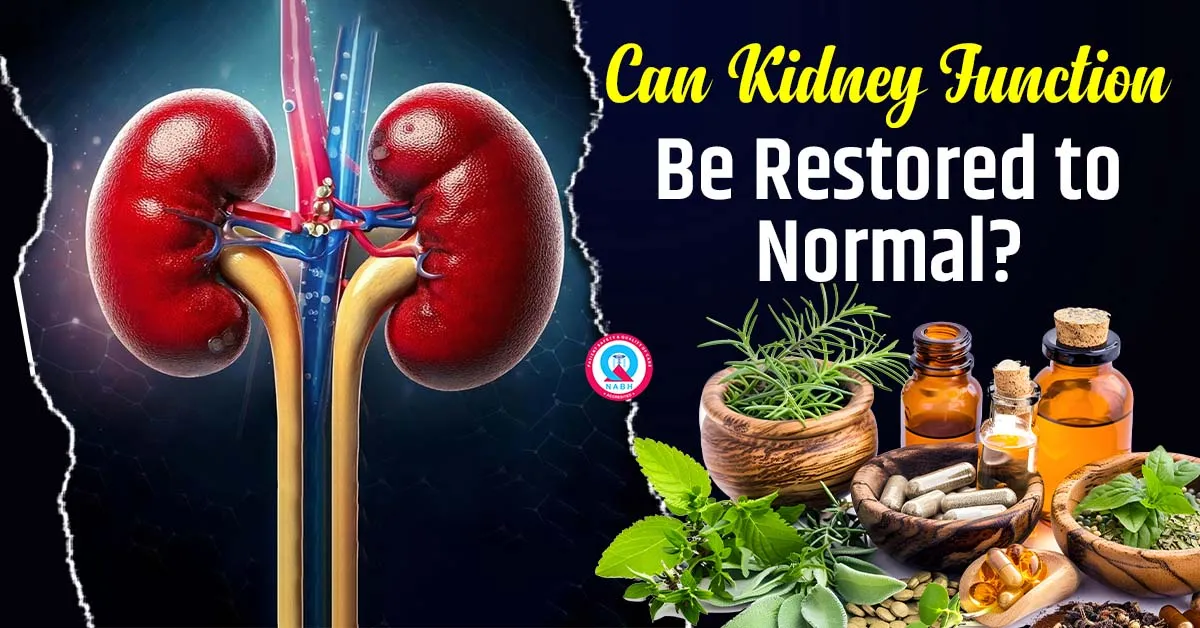
If you’re reading this, it likely means that you’re a little curious or potentially a bit anxious about your kidney health; you may have an inkling of what kidney function is and are asking yourself if kidney function can return to normal once it starts to decline. What a great question, and one that I get often when someone is dealing with kidney issues. So, let’s talk about it casually and comfortably.
First of all, your kidneys are small yet amazing organs. They filter your blood and remove waste, maintain a balance of fluids, regulate blood pressure, and support the production of red blood cells. When doctors talk about kidney function, they usually mean how well your kidneys are performing all of those functions, typically in terms of something called the glomerular filtration rate (GFR). In other words, the better your GFR is, the better your kidneys are functioning.
Here’s the truth: whether kidney function can be restored depends a lot on what caused the damage and how severe it is.
Acute Kidney Injury (AKI): This is when your kidneys suddenly stop working properly, often due to dehydration, infection, medications, or injury. The good news? If treated quickly, your kidneys can often bounce back to normal or close to it. It’s kind of like when you sprain your ankle, but rest it and do rehab; the right care can lead to recovery.
Chronic Kidney Disease (CKD): This is more of a slow, ongoing loss of kidney function over time, often caused by diabetes, high blood pressure, or other long-term issues. Unfortunately, CKD can’t usually be completely reversed. But here’s the positive: its progression can be slowed down significantly with the right lifestyle, treatment, and care.
Even if full restoration isn’t always possible, there are plenty of ways to protect and improve your kidney function:
Water is your kidneys’ best friend. Drinking enough water helps flush out toxins and keeps everything flowing smoothly. It is the easiest and most economical home remedy for kidney.
Focus on fresh fruits, veggies, whole grains, and lean proteins. Avoid excess salt, processed foods, and too much animal protein, which can put stress on the kidneys. consume a kidney friendly diet for good renal function.
If you have diabetes or hypertension, managing these well is key to preventing further kidney damage.
Limit alcohol, avoid smoking, and be cautious with over-the-counter painkillers like NSAIDs (ibuprofen, naproxen), as they can harm the kidneys if taken too often.
A little daily movement helps keep your whole body, including your kidneys, in great shape.
Keeping tabs on your kidney function with your healthcare provider is important, especially if you’re at risk.
Many people turn to Ayurvedic herbs for kidney health support. Herbs like Punarnava, Gokshura, and Methi are traditionally used to promote kidney function and reduce inflammation. While these can be helpful as part of a holistic approach, always check with a healthcare professional before starting any herbal supplements, especially if you’re on medications.
If your kidneys have been damaged suddenly, there’s a good chance they can heal with proper care. If the damage is long-term and chronic, full restoration might not be possible, but you can slow down progression and improve your quality of life by making mindful lifestyle choices and following your doctor’s advice.
Remember, kidneys are resilient but need your help to stay healthy. Small changes can make a big difference. So, take care of your body, listen to it, and don’t hesitate to reach out to health professionals if you notice any warning signs.
Mild damage may improve with proper care, but severe damage is often irreversible.
Yes, with a healthy diet, Ayurvedic herbs, hydration, and lifestyle changes.
Not always; some patients may recover partial function depending on the cause.
Yes, Ayurveda supports kidney repair using herbal remedies and Panchakarma therapy.
Second Floor, 77, Block C, Tarun Enclave, Pitampura, New Delhi, Delhi, 110034